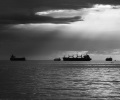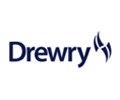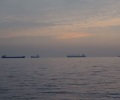South Korea to set SAF, bio-bunker standards from 2024 based on biofuel trials

South Korea will set quality standards for sustainable aviation fuel and renewable marine fuel in 2024 ahead of the planned start of blend mandates in 2025 and 2026, the country’s trade, industry, and energy ministry said on Dec. 8.
The ministry, also called Motie, made the announcement during the fourth general meeting of the eco-friendly biofuel revitalization alliance, organized by Motie, the transport ministry and the oceans and fisheries ministry.
The biofuel quality standards for SAF and marine biofuel will be established based on empirical results from the aviation and shipping industries after land and sea demonstrations for biofuel blending with bunkers to be conducted in 2024.
South Korea has committed to expanding domestic biofuels use through adopting marine biofuel by 2025, adopting SAF by 2026 and raising its 2030 biofuels blending mandate in the diesel pool.
Motie also announced that six demonstrations were completed by utilizing SAF in cargo planes between Seoul’s Incheon airport and Los Angeles, US. This is in addition to the completion of two bio-bunkering trials in the shipping sector mixing biodiesel with marine oil for offshore vessels. Additionally, a demonstration of marine oil mixed with bio heavy oil is planned to be conducted in 2024.
South Korean energy firm GS Caltex agreed in June to supply Korean Air with SAF for use on selected international flights departing from the Incheon airport. South Korean national flagship airline Korean Air has partnered with LX Pantos, a global logistics company, to expand the use of sustainable aviation fuel on its cargo flights, the companies said in a joint release Nov. 20. In September, Korean Air launched a cargo SAF program for air cargo customers and forwarders to make customized contributions to reduce their carbon footprint.
GS Caltex also supplied bio-marine fuel to two vessels owned by Hyundai Merchant Marine and Hyundai Glovis over Sept. 15-16. The firm also supplied high-sulfur fuel oil blended with 30% used cooking oil methyl ester to roll-on roll-off vessel operator Wallenius in November. This led the maiden HSFO vessel to mark its debut biofuel marine trial in South Korea.
Platts, part of S&P Global Commodity Insights, assessed the price of Bio-Bunkers B24 Singapore at $$727.68/mt on Dec. 8, down $4.40 on the day. The price of SAF cost of production Southeast Asia stood at $1474.34/mt on Dec. 8, down $12.94 on the day.
S&P Global analysts estimate that global SAF supply will reach 2.13 million mt in 2024, of which 2.03 million mt will be HEFA-produced SAF. However, global SAF demand consistently lags supply, estimated at 1.24 million mt in 2023 and rising to 2.156 million mt in 2024, S&P Global says.
In its Nov. 3 Freight Markets Bunker Forecast, S&P Global Commodity Insights estimated that global bunker fuel demand will reach around 328 million mt by 2030. Of this, all alternative fuels — excluding LNG and LPG — will likely have a 2.2% share in total.
Source: Platts

 Hellenic Shipping News Worldwide Hellenic Shipping News Worldwide, Online Daily Newspaper on Hellenic and International Shipping
Hellenic Shipping News Worldwide Hellenic Shipping News Worldwide, Online Daily Newspaper on Hellenic and International Shipping




















 PG-Software
PG-Software